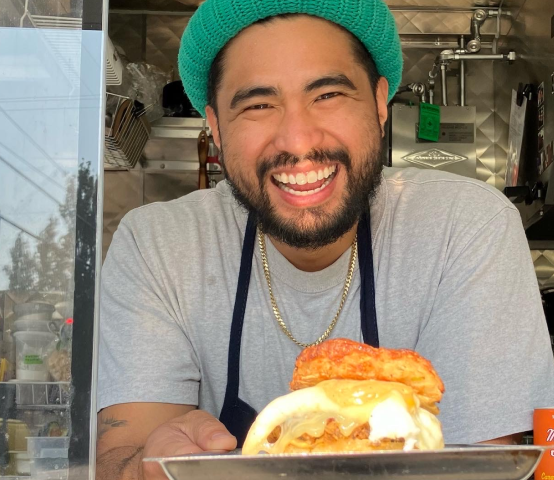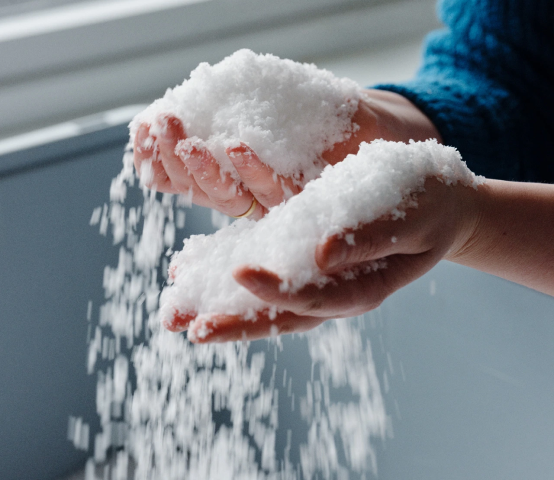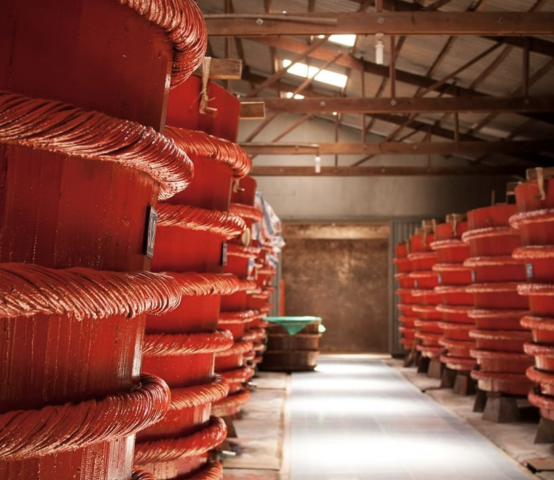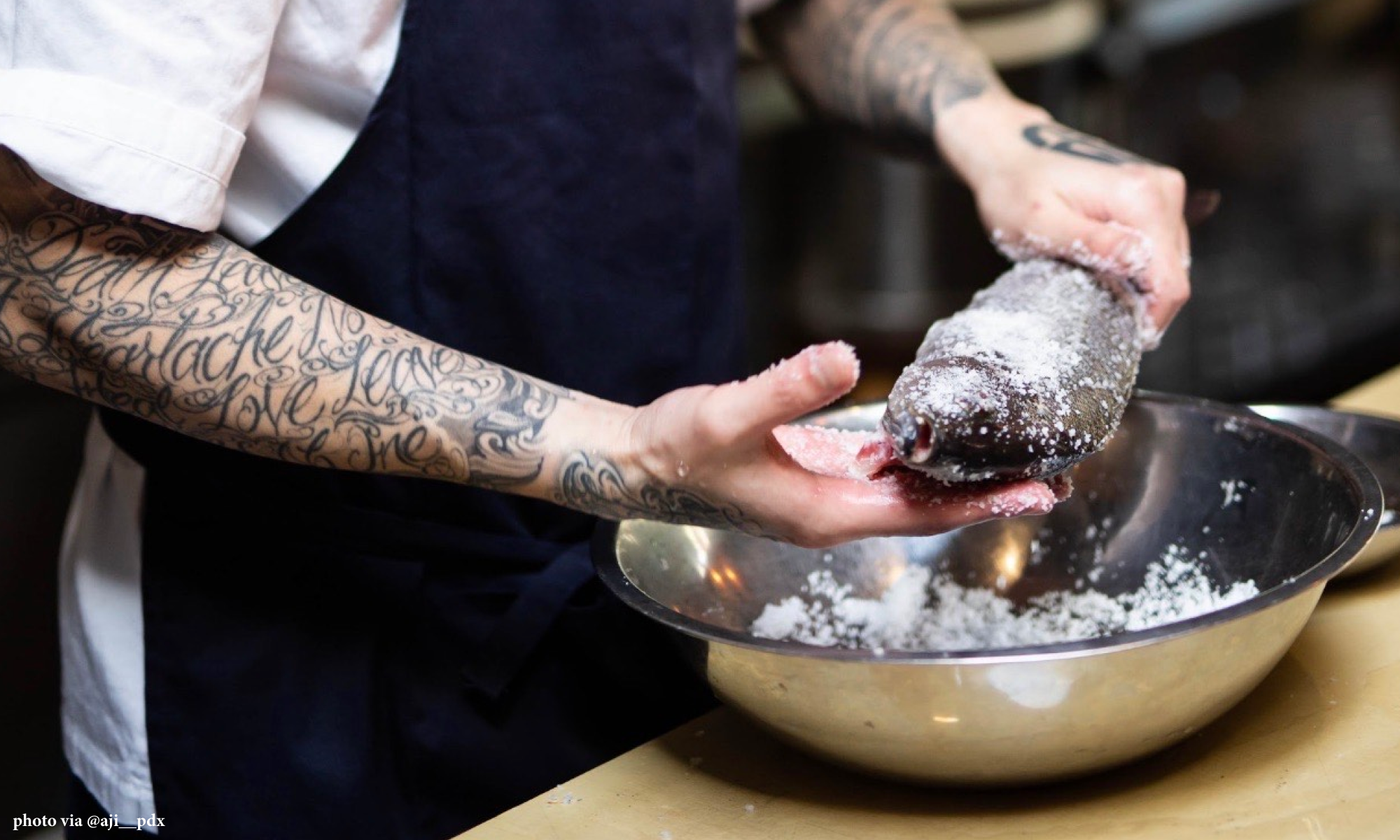
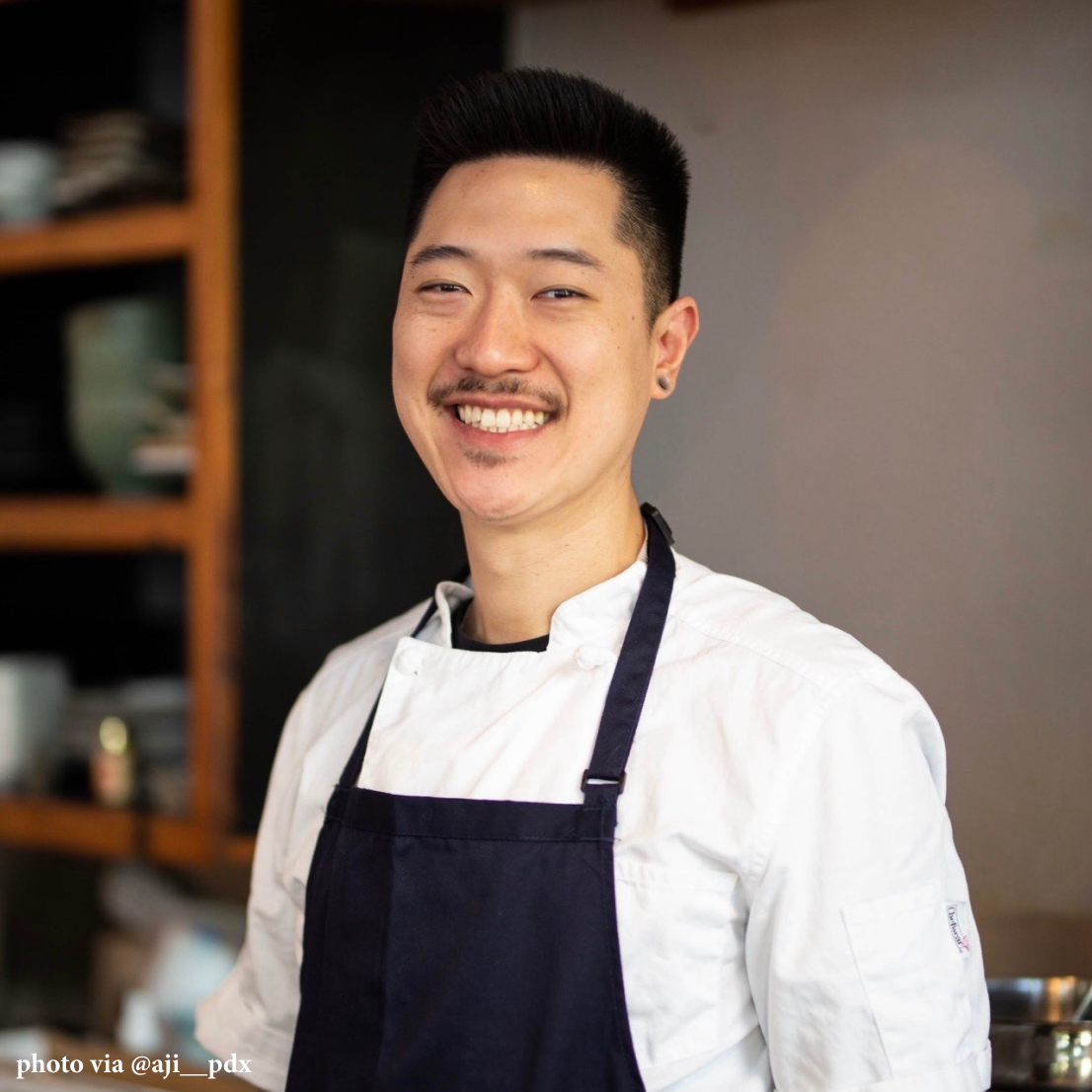
Growing up, Korean-American...
chef Jeff Kim’s mother worked 3 jobs to support their family, and Jeff sometimes helped out during her shifts working as a janitor. This early exposure to hard work instilled in him both a serious work ethic and the understanding of the kind of work he didn’t want to do, and so in highschool he began his career in food with a job at a sullungtahng, or Korean bone soup restaurant. After highschool he landed a job as a busser at a sushi restaurant, and was quickly promoted to the kitchen and learned to make traditional sushi rolls. He fell for sushi hard, and dedicated himself to learning the craft, eventually landing a position at Katsu-Ya, one of Los Angeles’ most acclaimed sushi restaurants.
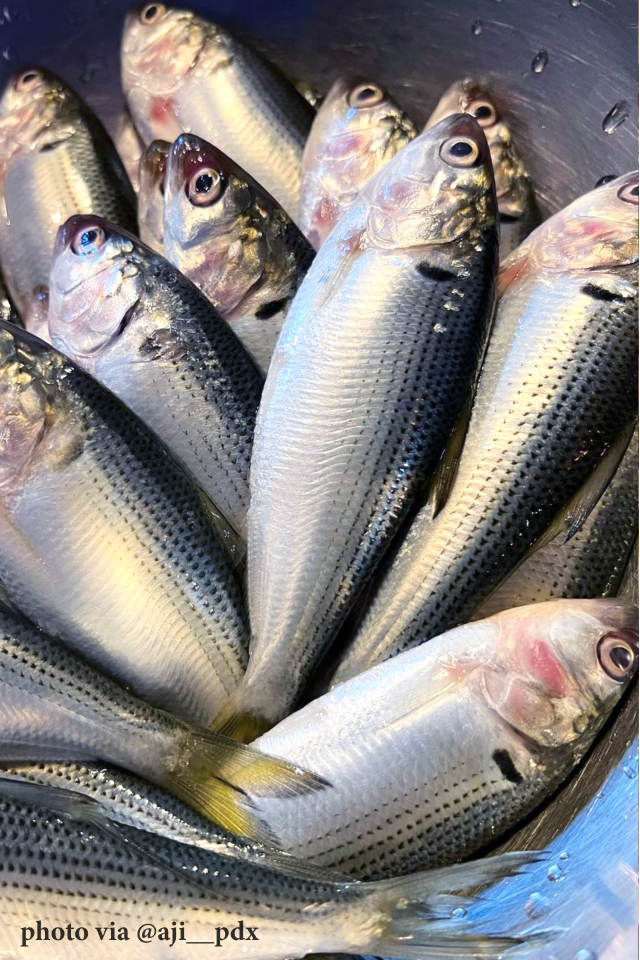
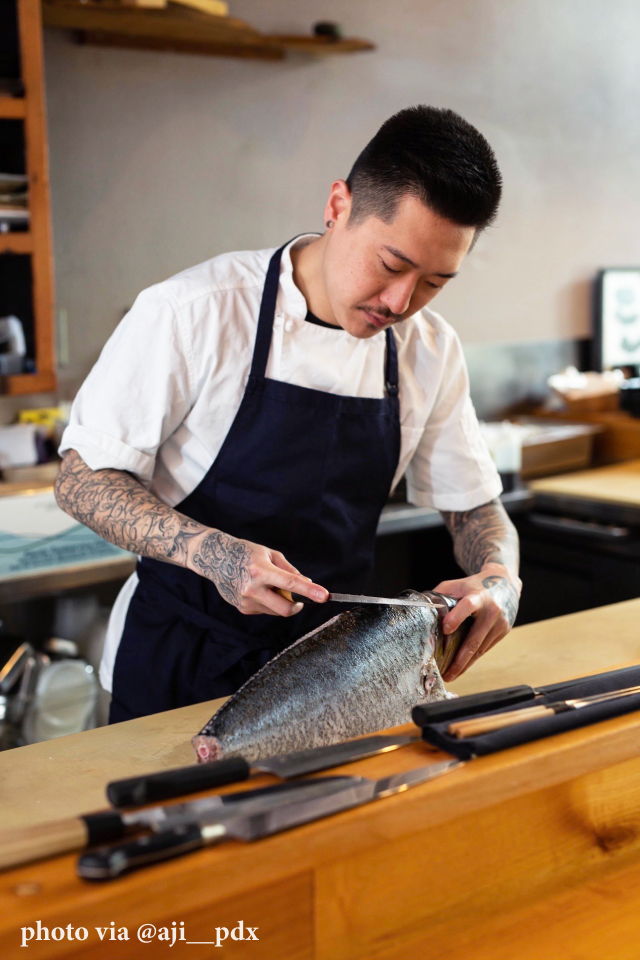
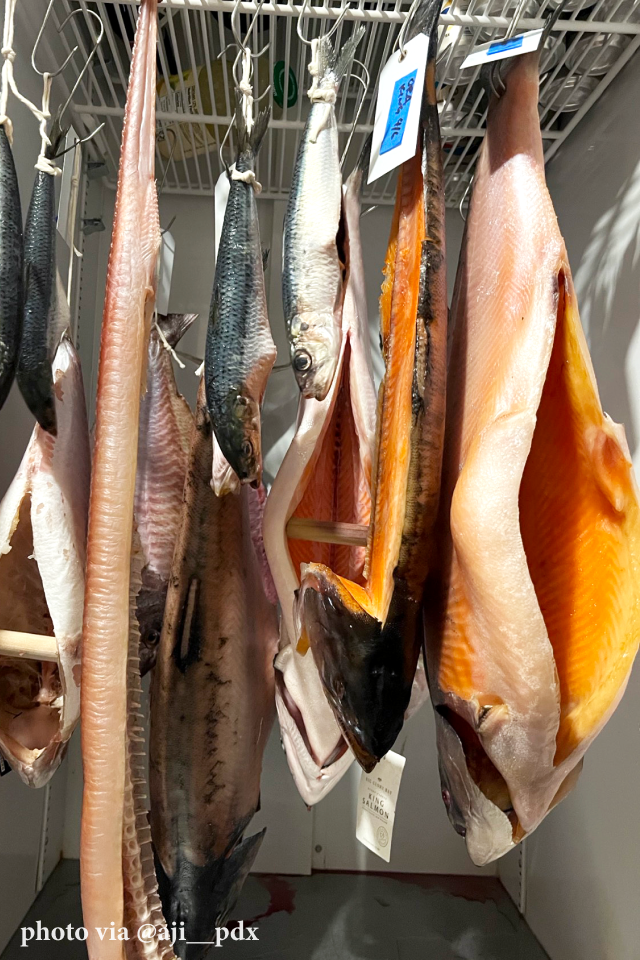
It turns out that the amino acids released during the dry aging process not only concentrate the flavor, but also tenderizes the flesh, yielding a buttery texture and rendering even tough tendons silky and soft.
Jeff moved to Portland a few years ago in an effort to broaden his horizons as a chef. He worked as Bamboo Sushi’s first “dual” Chef de Cuisine, responsible for both the sushi and hot kitchen sides of Bamboo’s SE location before taking the helm at their downtown outpost. After a few years of refining his sushi skills, he took the head chef job at Zilla Sake over four years ago, where his journey into the world of dry aged fish began in earnest when Portland’s restaurants were ordered to close in the wake of the 2021 COVID-19 pandemic. Jeff had just received a whole Mikan Madai (Japanese Sea Bream) and being unsure of what was to come and hoping to avoid waste, he thought to preserve it through a process of aging. After two weeks of constant monitoring–changing out the paper the fish was resting on, replacing ice packs, checking for correct temperatures–the sea bream gave off no bad smells and didn’t show any other signs of spoilage. Jeff sliced into it, took a bite, and was totally blown away.
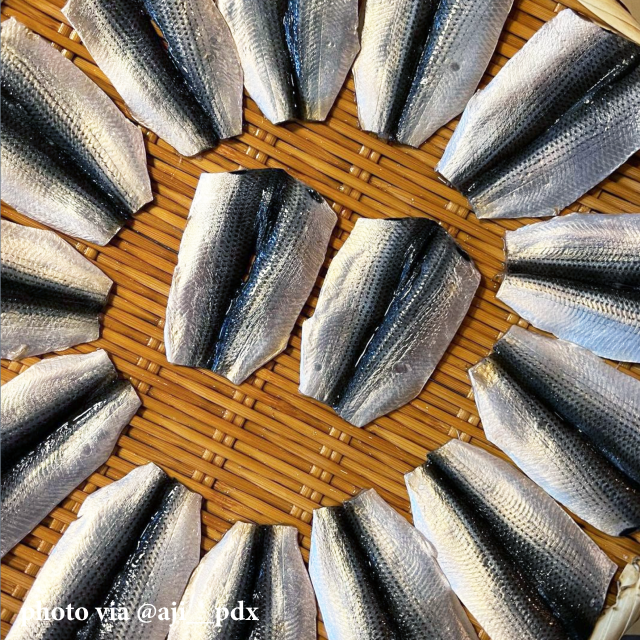
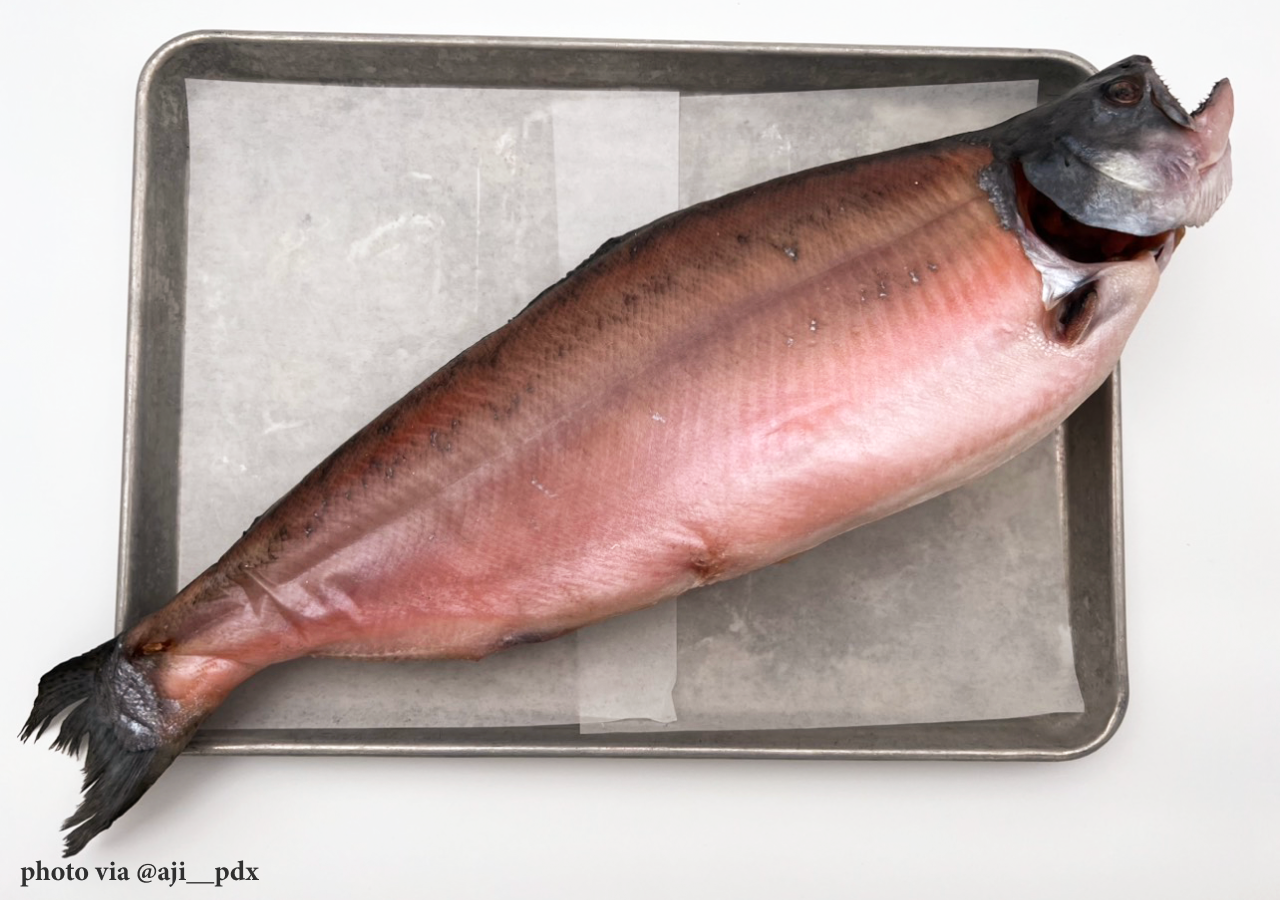
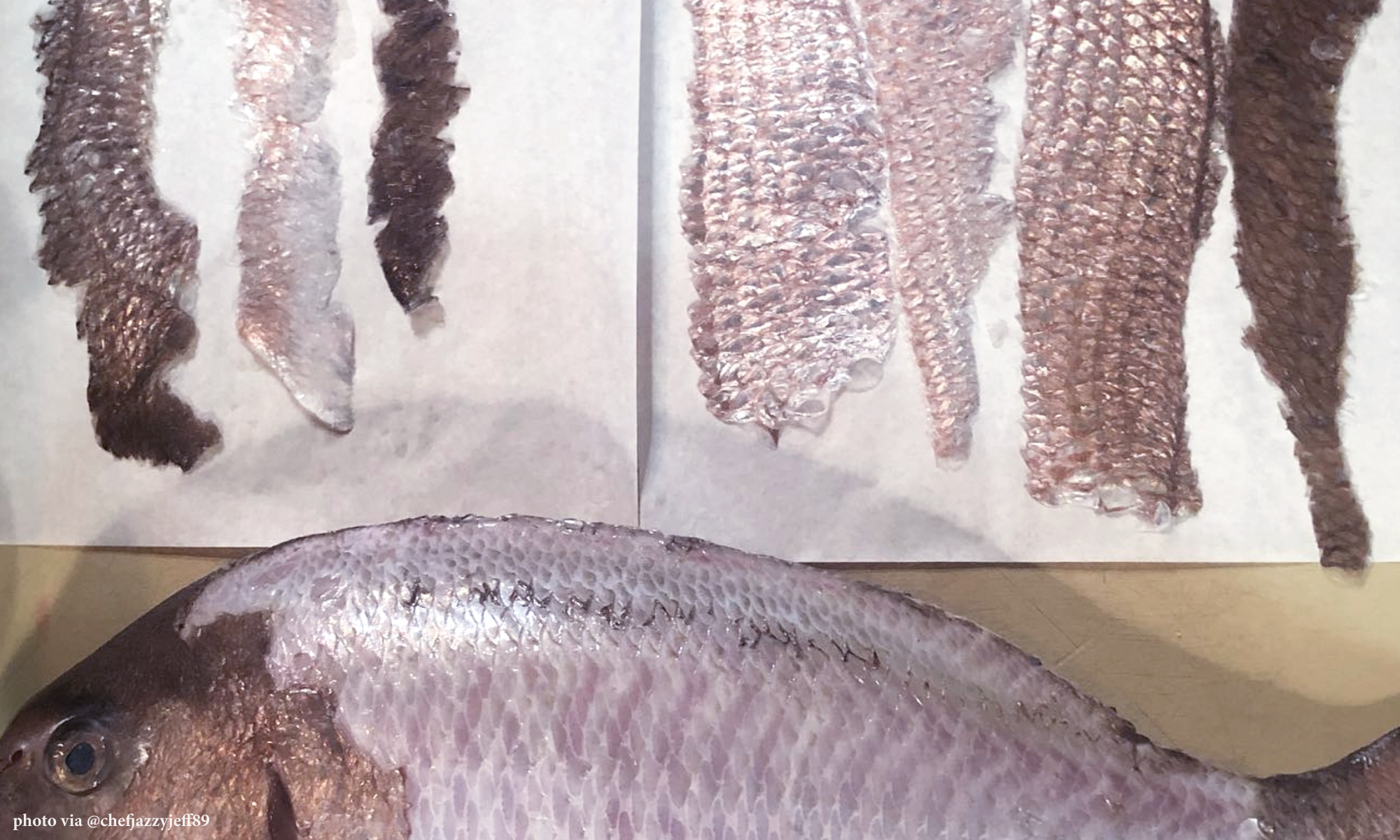
A Japanese technique dating back hundreds of years, dry-aging fish remains unfamiliar to many, but Jeff dove in deep, learning everything he could while experimenting and tweaking his own technique along the way. It turns out that the amino acids released during the aging process not only concentrate the flavor, but also tenderizes the flesh, yielding a buttery texture and rendering even tough tendons silky and soft. His process involves gutting, scaling, and finally salting the fresh fish to pull out any remaining moisture before moving it into a temperature- and humidity-controlled environment where he closely monitors it for weeks until it’s ready to be eaten. What started as a pandemic-era Hail Mary has turned into Aji Fish Butchery, one of Portland’s most exciting new food companies. Jeff likes to say that when it comes to fish, “fresh is just the beginning;” we can’t wait to eat what comes next.
All photos are via @aji_pdx, @chefjazzyjeff89

